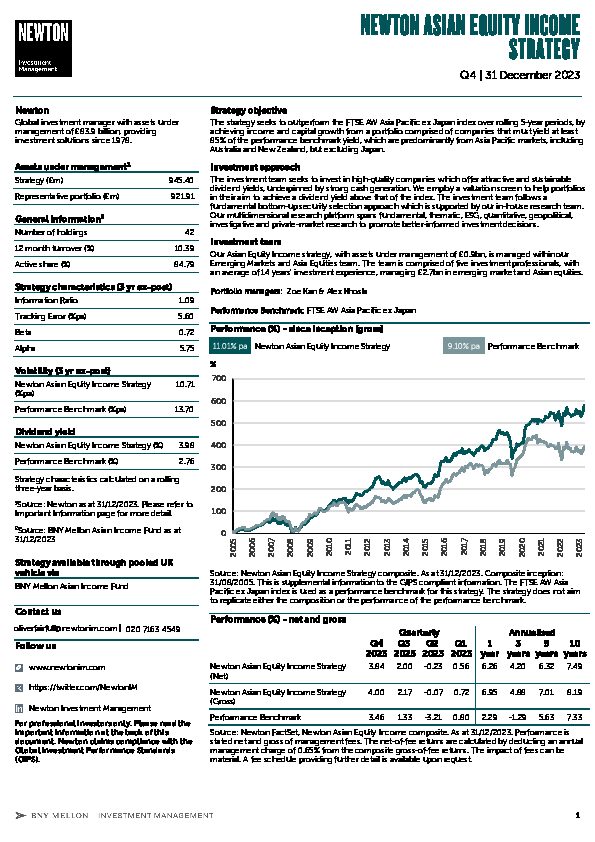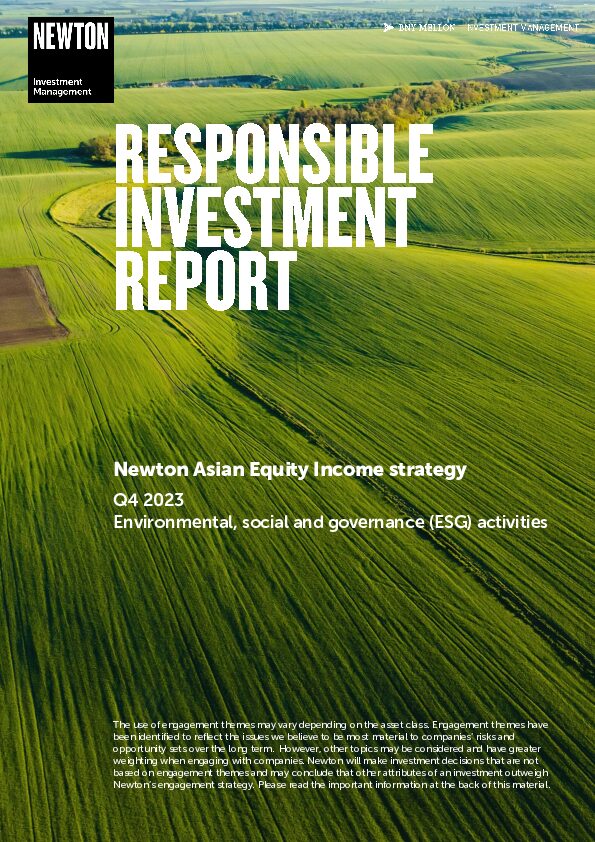Strategy profile
-
Objective
-
The strategy seeks to outperform the FTSE AW Asia Pacific ex Japan index by more than 2% per annum over rolling 5-year periods by achieving income and capital growth from a portfolio comprised of companies that must yield at least 85% of the performance benchmark yield, which are predominantly from Asia Pacific markets, including Australia and New Zealand, but excluding Japan.
-
Performance benchmark
-
FTSE All World Asia-Pacific ex Japan
-
Typical number of equity holdings
-
40 to 70
-
Yield discipline
-
Every new holding must have a prospective yield of at least 85% of the yield achieved by the performance benchmark. Any holding whose prospective yield falls below a 40% discount to the yield achieved by the benchmark will be sold. On account of liquidity, it may not be possible to dispose of an entire holding immediately.
-
Strategy inception
-
Composite inception: 1 September 2005
-
Strategy available through pooled UK vehicle
-
BNY Mellon Asian Income Fund
View fund performance
View Key Investor Information Document
View prospectus
Investment team
-
- Our Asian Opportunities strategy is managed by an experienced team. In-house research analysts are at the core of our investment process, and our multidimensional research platform spans fundamental, thematic, ESG, quantitative, geopolitical, investigative and private-market research to promote better-informed investment decisions.
Want to find out more?
Your capital may be at risk. The value of investments and the income from them can fall as well as rise and investors may not get back the original amount invested.
ESG can be one of many inputs into the fundamental analysis. Newton will make investment decisions that are not based solely on ESG analysis. Other attributes of an investment may outweigh ESG analysis when making investment decisions. The way that material ESG analysis is assessed may vary depending on the asset class and strategy involved. As of September 2022, the equity investment team performs ESG analysis on equity securities prior to their recommendation. ESG analysis is not performed for all fixed-income securities. The portfolio managers may purchase equity securities that are not formally recommended and for which ESG analysis has not been performed.









